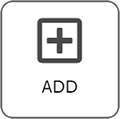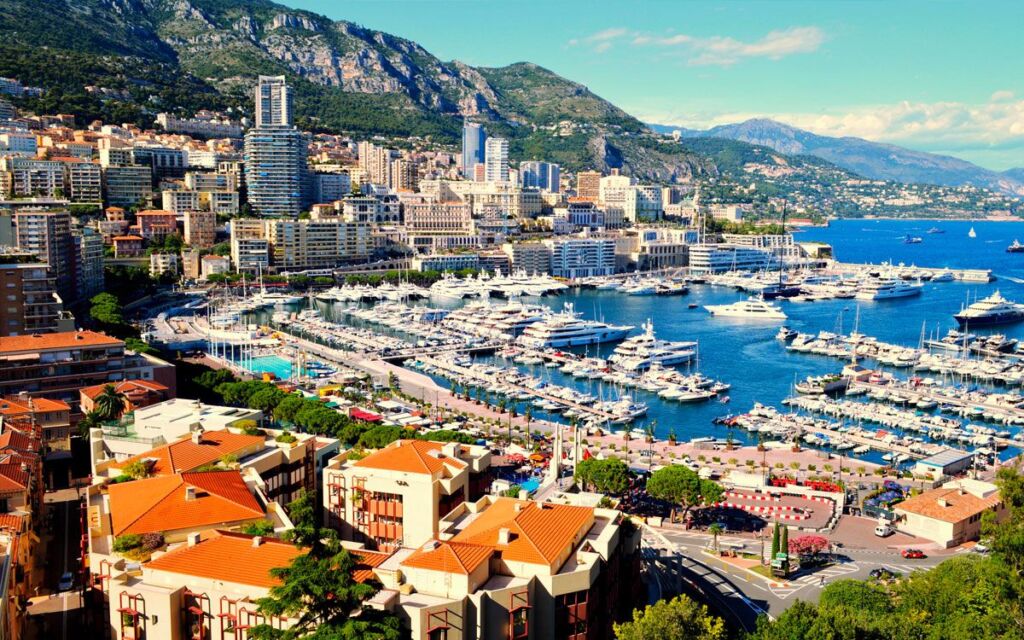Monaco is a sovereign city-state on the French Riviera in Western Europe. It covers 2.02 km² of rugged coastline backed by steep hills. Its name derives from the nearby Ligurian colony Monoikos mentioned by the ancient Greeks. The principality has about39000 residents and ranks as the world’s second-smallest country after the Vatican. French is the official language, while Italian and English are widely spoken in business and tourism. Alcohol is legal from age18 and strictly regulated in bars and nightclubs. Narcotics are prohibited. Monaco holds the highest per capita GDP in the world and enjoys regalia such as the title of a sovereign hereditary monarchy under the Grimaldi family since1287. The gambling industry is legendary: the Monte Carlo Casino, operated by Société des Bains de Mer, is a global icon.
History
Monaco’s history stretches back to prehistoric times when Ligurian tribes inhabited the coastal caves. The Phoenicians and later the Greeks called it Monoikos, meaning “single house,” referencing the temple of Hercules built into the rock. In950 AD the area fell under the Holy Roman Empire. By the late13th century a Genoese fortress dominated the peninsula. OnJanuary8 1297 François Grimaldi, disguised as a Franciscan monk, seized the fortress and established Grimaldi rule. This act laid the foundation for the world’s oldest continuous hereditary monarchy. The Grimaldis alternated allegiance between Genoa, Sardinia and Spain but retained local autonomy.
In1713 the Treaty of Utrecht granted Monaco full sovereignty, though France continued to exert influence. Monaco’s fortunes waned until Honoré IV secured a new treaty with Napoleonic France in1815 under the Congress of Vienna. The principality accepted French protection but maintained internal self-rule. During the19th century Charles III transformed Monaco’s economy by founding the Monte Carlo Casino in1863 and exploiting challenging tax concessions to attract wealthy visitors. At the same time he commissioned luxury hotels and opera houses, forging Monaco into a playground for European aristocracy.
The Franco-Monegasque Treaty of1861 confirmed Monaco’s sovereignty and ceded the towns of Menton and Roquebrune in exchange for financial support. In1918 a new treaty placed Monaco’s foreign policy under French supervision, ensuring continued French protection. Monaco remained neutral during both world wars, though it endured Italian occupation in1942 and German occupation briefly in1943. The Grimaldi family sheltered refugees and resisted deportations, preserving the safety of many Jewish residents.
After World War II Prince Rainier III modernized the economy. He reformed the constitution in1962, creating a constitutional monarchy with an elected National Council. Rainier fostered growth in banking and real estate and married American actress Grace Kelly in1956, boosting Monaco’s global fame. Their daughter Princess Caroline and son Albert II continue the dynasty. Albert II succeeded in2005 and has championed environmental causes, launching the Prince Albert II of Monaco Foundation in2006.
Monaco joined the United Nations in1993 and the Council of Europe in2004. Though not an EU member, it participates in the Schengen Area and uses the euro. The principality balances tradition and innovation: the historic Old Town near the palace blends with the new district of Fontvieille, reclaimed from the sea in1973. Monaco hosts prestigious events such as the Formula One Grand Prix, which has run annually since1929 with brief wartime interruptions. Today Monaco remains a symbol of resilience and luxury, honoring centuries of Grimaldi rule while continuing to evolve as a leading center of culture, finance and tourism.
Industry
Monaco’s economy is dominated by tourism, finance and real estate rather than heavy industry. The Société des Bains de Mer group operates the casino, hotels and nightlife. Monaco Finance Centre hosts over130 banks and financial institutions. The principality is home to luxury brands such as Venturi Automobiles and the Yacht Club de Monaco, but most goods are imported from France or Italy. Monaco holds no industrial records in steel or chemicals but leads globally in per capita wealth management and hospitality services.
Religion and Ethnicities
Roman Catholicism is the state religion and encompasses about90 percent of residents. Minorities include Protestant, Orthodox and Jewish communities. Ethnically, native Monegasques account for21 percent, French28 percent, Italian19 percent and other nationalities32 percent. Religious traditions center on the feast of Sainte Devote onJanuary27 and Christmas midnight mass at the Cathedral of Our Lady Immaculate. Pilgrims and worshippers attend weekly services, and church festivals mark major life events.
Wars and Conflicts
Monaco has not waged war independently but has been affected by regional conflicts. It endured Italian occupation in1942 and German occupation in1943. No battles occurred on its soil, but geopolitical treaties in1713,1815 and1918 reshaped its sovereignty. There are no current military forces beyond a small ceremonial guard and civil protection units. No terrorist attacks have occurred in modern times, and no military cemeteries exist. Monaco’s involvement in global conflicts is limited to humanitarian and diplomatic support.
Standard of Living
Monaco boasts the highest GDP per capita worldwide, exceeding200000USD. The Human Development Index places it among the top ten nations. Corruption is minimal due to strict regulations and transparent governance. Monaco ranks consistently high in quality of life metrics, with universal healthcare, free education and extensive public services.
Medicine
Healthcare is provided by the Princess Grace Hospital Centre, which offers advanced facilities and multilingual staff. All residents contribute to a social security system funding medical care. Tourists should secure travel insurance and expect high costs for private services. Pharmacies are abundant but often close on Sundays. Emergency services operate24hours with fast response times.
Sport
Formula One Grand Prix, Monaco’s flagship motorsport event since1929, draws global spectators. Football club AS Monaco competes in the French league and has won titles in Ligue1. The Monte Carlo Tennis Masters and Rallye Monte-Carlo are annual highlights. Sailing regattas in Port Hercules and swimming competitions in Larvotto Beach are popular. Monaco has produced Olympic medalists in judo, fencing and swimming.
Holidays
New Year’s Day January1 is celebrated with public concerts. Sainte Devote January27 honors the patron saint with boat processions. National Day November19 features a royal address and fireworks. Labour Day May1 and the Ascension are observed with official closures. Christmas December25 includes festive markets and midnight mass.
Traditions
Monégasque customs emphasize respect and formality. Greeting with a handshake is common. Visitors should dress smartly in public venues. During National Day the population wears their best attire. Tourists should avoid loud behavior near royal residences and remove hats in churches.
Interesting Facts
Grace Kelly became Princess of Monaco in1956. The Oceanographic Museum founded by Prince Albert I in1910 sits on a cliff. Scenes from James Bond films GoldenEye and Never Say Never Again were shot here. Prince Albert II is an Olympic bobsledder. Monaco’s heraldic animals are the red and white lozenges seen on its flag. In2004 a boating accident in Port Hercules led to new safety regulations for yachts.
Money
The euro is the official currency. Credit cards are accepted widely; ATMs are plentiful. There is no local currency exchange, but banks and bureaux de change in Monte Carlo offer competitive rates. Cash is preferred in small shops. Tipping is not obligatory but appreciated: rounding up taxi fares and leaving5–10percent in restaurants.
Household Details
Electricity is220V at50Hz. Plugs are typeC and typeE. Monaco Telecom provides 4G and expanding5G coverage. Wi-Fi is widely available in cafes and hotels. Water is potable from the tap.
Clothing
Smart casual is the norm. In summer lightweight attire is fine, but shorts must be tailored and cover the knee in formal areas. Open shoulders and flip-flops are discouraged in casinos and churches. Hats are optional but remove them indoors.
Tourism
Tourism revolves around Monte Carlo’s glamour, historic Old Town and scenic Mediterranean vistas. Visitors explore the Palace, casino, luxury boutiques and the Japanese Garden. Guided tours of the Oceanographic Museum and the Exotic Garden reveal rare marine species and succulents. Private yacht charters offer coastal panoramas. Cultural events include the Monte Carlo Ballet and Philharmonic Orchestra. Boat cruises to nearby Cap d’Ail and Menton on the French coast are popular day trips.
Types of Tourism
Luxury tourism with five-star hotels and fine dining. Cultural tourism at museums and opera. Sports tourism for F1 and tennis. Cruising and yachting tourism. Wellness tourism at spas and thermal centers.
List of Tourist Attractions
Monte Carlo Casino – opulent gaming palace and Belle Époque architecture
Prince’s Palace – royal residence with daily changing of the guard
Oceanographic Museum – cliffside aquarium and marine science exhibits
Exotic Garden – cliff-top succulent collection and grotto
Larvotto Beach – public sandy beach with clear Mediterranean waters
List of Non-Tourist Attractions
Fontvieille Workshops – artisan studios in reclaimed land district
Hercules Port Fishing Quay – local fishing boats and markets
Saint-Martin Gardens – quiet park near the Princess Grace Hospital
Old Monégasque Cemetery – historic graves of Grimaldi ancestors
Administrative Quarter – glimpse of government offices and daily life
Local Cuisine
Barbagiuan – fried pastry filled with Swiss chard and ricotta
Fougasse – olive-oil flatbread with olives and herbs
Socca – chickpea pancake seasoned with pepper
Pissaladière – onion tart topped with anchovies and olives
Local rosé wines and rosé Champagne are popular. Breakfast7–9AM, lunch12–2PM, dinner7–10PM. Restaurants may add service charge; leaving extra5–10percent is customary. Food safety standards are high.
Why Visit
Monaco offers unique microstate charm, luxury experiences, world-class events and Mediterranean beauty all within walking distance.
Safety for Tourists
Crime is almost nonexistent. Over900 CCTV cameras ensure public security. Terrorist risk is negligible. No dangerous wildlife. Hygiene standards are excellent. All nationalities are welcomed equally.
Tourist Infrastructure
Five-star hotels and Michelin-starred restaurants abound. Staff often speak French, English and Italian. Medical, transport and hospitality services meet international standards.
Entry Rules
Monaco has no border controls with France. Schengen visa rules apply. Passport should be valid for three months beyond departure. Prohibited imports include narcotics and unlicensed weapons.
Transport
Public buses cover the principality; tickets cost1.50EUR. Taxis and rideshare apps operate 24hours. The nearest train station in Monaco-Monte Carlo links to Nice, Marseille and Milan. Bicycle and electric scooter rentals are available.
Car
International driving permits are recognized. Driving on the right. No tolls within Monaco. Speed limit50km/h in town,80km/h on French roads nearby. Zero blood-alcohol limit. Speed cameras enforce limits. Compact cars are recommended. Fines start at60EUR.
Noise Regulations
Quiet hours are from22:00 to07:00 in residential zones. No loud music or construction permitted during these times.
Daily Budget
Budget travel:100EUR (110USD) per day. Comfortable stay:200EUR (220USD). Luxury:500EUR (550USD) or more.
What Is Not Recommended or Strictly Forbidden
Do not litter or feed wildlife. No unauthorized photography of security installations. No topless sunbathing. Avoid political demonstrations.
Climate
Monaco has a Mediterranean climate. Winters are mild with January averages of9°C. Summers are warm with July averages of24°C. Best time to visit is April through October for sunny days and moderate temperatures.
Travel Tips
Maintain routine vaccinations and consider tetanus booster. Carry sun protection and a light jacket for evenings. Purchase travel insurance covering medical evacuation. Book major events well in advance. Enjoy Monaco’s elegance responsibly.
- Glorious sea — sacred Baikal
- Haiti, unfiltered: how to travel smart and fall in love with the country
- House of Russian-Korean Friendship Opened in Primorye on the Border with the DPRK
- Tonga
- Weekend in Moab: Arches, Canyons, and the Spirit of Adventure
- Bolivia
- Tourist view on the history of the Basmachi: traces of the past in travels across Central Asia
- Honduras
- Barack Obama: tourist places of his life and travels
- Dagestan: between the grandeur of nature and the challenges of tourism
- Distant Storms Create Dangerous Surf at East Coast Beaches
- With a Movie Camera in Kamchatka
- Abkhazia
- Uzbekistan
- Liberation of Belarus from the Nazis
- 24 Facts About The Colosseum
- In the footsteps of Buratino: tourist spots from the beloved fairy tale and film
- Nicaragua
- Birds
- Irkutsk











